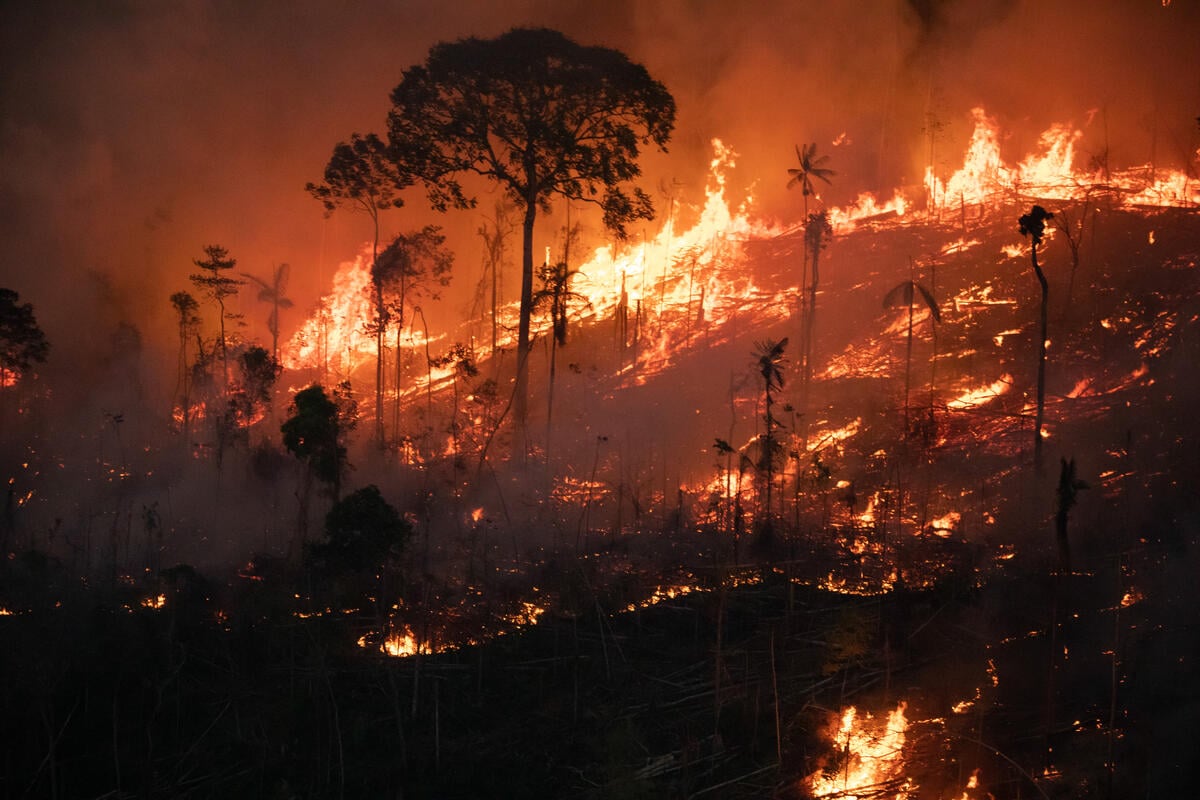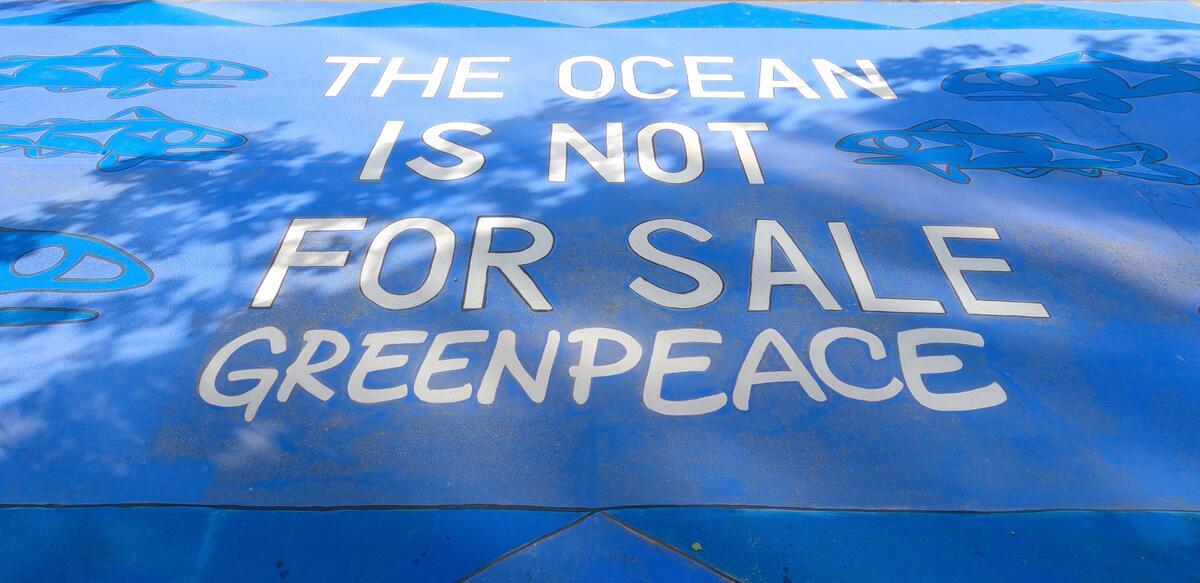OTTAWA — Twenty-four hours before the end of the negotiations for a Plastics Treaty at the fourth Intergovernmental Negotiating Committee (INC-4), Greenpeace Canada activists hung a banner on the Mackenzie King Bridge, right next to the Shaw Center, where world delegations are gathered. The fourteen meters banner read “People over polluters: Cut plastic production now!” and followed the release of an analysis revealing a rise in industry lobby presence at the negotiations.
“The world’s governments have 24 hours to set the Plastics Treaty up for success or risk massive failure. If cuts to production are taken off the table, plastics will continue to accelerate climate change, biodiversity loss, pollution and harming communities. The stakes are high and success depends on leadership at the highest levels of government to ensure all options remain on the table and a strong package of intersessional work is agreed. Now more than ever we need a process that brings people together, and prioritizes human and planetary health,” said Sarah King, Head of the Oceans and Plastics campaign with Greenpeace Canada and member of the Greenpeace International delegation at INC-4.
A recent analysis showed that 196 lobbyists from the fossil fuel and chemical industry are registered for the plastics treaty talks in Ottawa, which represents a 37% increase since INC-3. Research commissioned in 2024 by Greenpeace Canada found that lobbying of the Canadian government spiked in advance of and during previous Plastics Treaty negotiations. The growth in plastics lobbying is mainly attributable to three actors: Dow Chemical, Imperial Oil, and the Chemistry Industry Association of Canada who are also among the registered lobbyists at INC-4.
“Big Plastic and Big Oil, backed by a minority of governments, may be throwing their weight around in the negotiations, but outside the walls of the Shaw Centre the public is cheering for governments who are championing an end to the age of plastic. The interests of the people must come before the interests of the polluters,” added King.
In advance of INC-4, Greenpeace commissioned a global poll that found that 80% of people worldwide support a Global Plastics Treaty that cuts production to stop biodiversity loss and limit climate warming to 1.5 C. The poll was conducted across 19 countries, representing a mix of high and low ambition country positions.
ENDS
Note to editors:
Photos of Greenpeace banner on Mackenzie King Bridge can be found in the Greenpeace media library (they will be uploaded throughout the day);
Earlier this week, Greenpeace Canada delivered a “Global Plastics Factory” to the doorstep of the Shaw Center, calling on global delegates to cut plastic production, which ended with the arrest of one peaceful activist.
Greenpeace, along with allies, is calling for a strong Treaty that cuts plastic production, accelerates a just transition to reuse-based solutions, ends single-use plastics, upholds human rights and centers Indigenous rights as well as the voices of impacted communities worldwide.
For more information, please contact:
Laura Bergamo, Head of Media, Greenpeace Canada
[email protected], +1 438 928-5237



